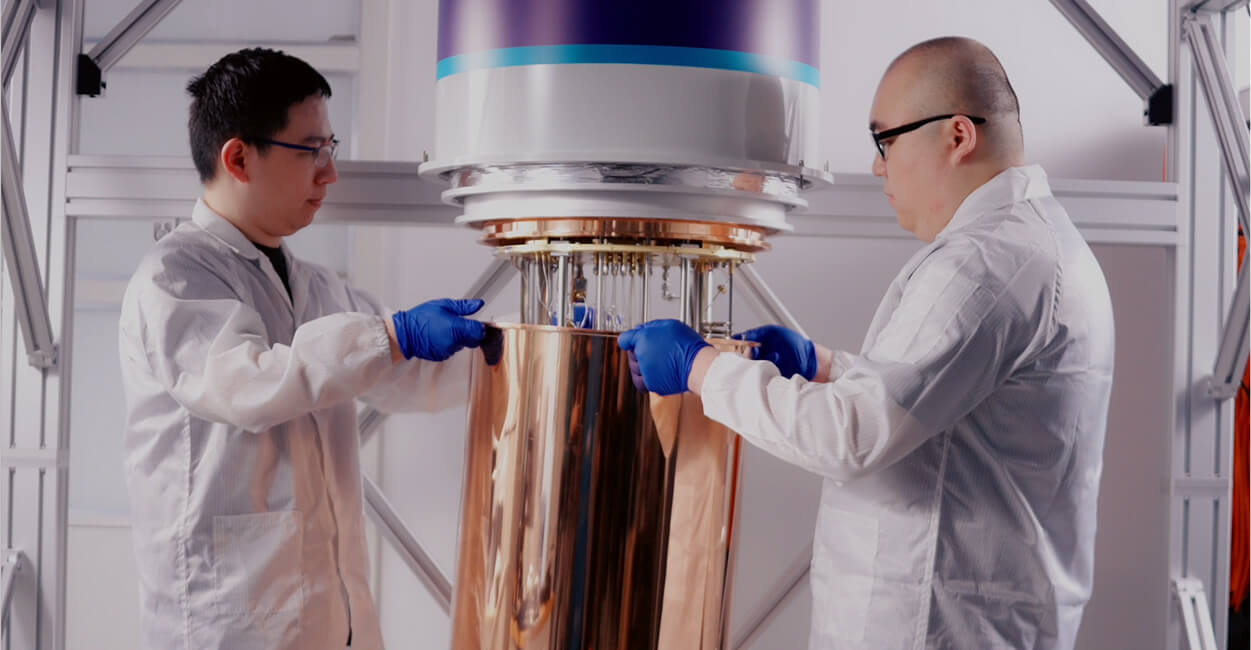Quantum Computing as a Service: Unlocking the Power of Next-Generation Computing
2025.07.25 · Blog Quantum Computing as a Service
As the limits of classical computing approach their peak, quantum computing has emerged as one of the most promising technologies to tackle problems once thought unsolvable. But developing quantum hardware and building quantum algorithms require massive investments, specialized knowledge, and highly controlled environments — obstacles that put quantum computing out of reach for most organizations.
This is where Quantum Computing as a Service (QCaaS) comes in.
What is Quantum Computing as a Service?

Quantum Computing as a Service is a cloud-based model that allows businesses, researchers, and developers to access quantum computers via the internet — without needing to own or maintain the hardware themselves. Instead of building their own quantum infrastructure, users can run quantum algorithms on remote quantum processors provided by specialized vendors.
Just like traditional cloud computing democratized high-performance computing resources, QCaaS is democratizing access to quantum power.
How Does QCaaS Work?
Most QCaaS providers offer a hybrid model that combines classical computing resources with remote quantum processors. Users typically write quantum algorithms in programming languages like Qiskit, Cirq, or Braket, then run them through the provider’s cloud platform.
These platforms handle the heavy lifting:
-
Quantum Hardware: Superconducting qubits, trapped ions, or photonic quantum chips housed in specialized facilities.
-
Classical Interface: A user-friendly development environment, software stack, and APIs.
-
Hybrid Execution: Classical computers run parts of the workload that don’t require quantum speedup, while quantum processors handle the quantum-specific tasks.
Leading QCaaS Providers
Some of the most prominent players offering QCaaS include:
-
IBM Quantum: One of the pioneers, with its IBM Quantum Experience and Qiskit platform.
-
Amazon Braket: AWS’s managed service for quantum computing.
-
Microsoft Azure Quantum: A cloud ecosystem combining multiple quantum hardware partners.
-
D-Wave Leap: A QCaaS model focusing on quantum annealing for optimization problems.
-
Rigetti Quantum Cloud Services: Access to Rigetti’s superconducting quantum computers.
Benefits of Quantum Computing as a Service
Cost-Effective Access — No need to build expensive quantum labs or maintain cryogenic cooling systems.
Scalable and Flexible — Pay-as-you-go models mean you can experiment at your own pace.
Rapid Innovation — Developers can test algorithms, run simulations, and learn without hardware barriers.
Collaboration and Education — Universities and startups can train quantum developers and push research forward faster.
Use Cases of QCaaS
Industries already exploring QCaaS include:
-
Pharmaceuticals: For simulating molecular interactions and drug discovery.
-
Finance: For risk analysis and portfolio optimization.
-
Logistics: For solving complex supply chain and routing problems.
-
Materials Science: For discovering new materials with unique properties.
Challenges to Consider
While QCaaS is an exciting frontier, it’s not without limitations:
-
Noisy Qubits: Today’s quantum computers are prone to errors and have limited qubit counts.
-
Algorithm Maturity: Many quantum algorithms are still experimental.
-
Talent Gap: Quantum programming requires specialized skills that are still rare.
However, the field is evolving rapidly, with breakthroughs in error correction, hybrid algorithms, and hardware stability happening every year.
The Future of Quantum Computing as a Service
As quantum hardware matures and more powerful processors come online, QCaaS will likely follow a trajectory similar to early cloud computing — evolving from an experimental resource into a core business tool.
Organizations that experiment today will gain a head start understanding how to harness quantum power for real-world applications tomorrow.
Final Thoughts
Quantum Computing as a Service is lowering the barriers to one of the most transformative technologies of our time. By making quantum power accessible through the cloud, QCaaS is helping businesses, researchers, and innovators explore what’s possible — without waiting for quantum hardware to reach every desktop.
For anyone looking to future-proof their tech strategy, now is the time to explore the quantum cloud.
Featured Content






